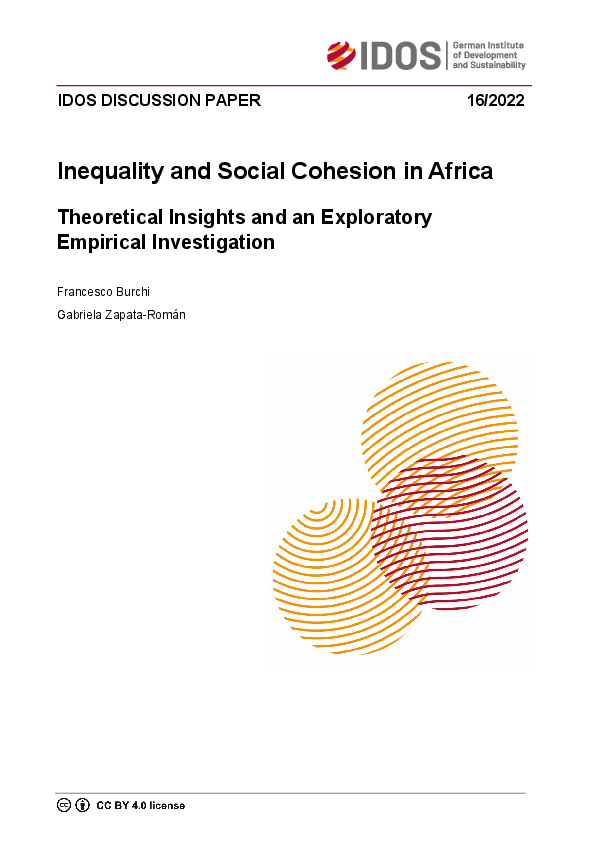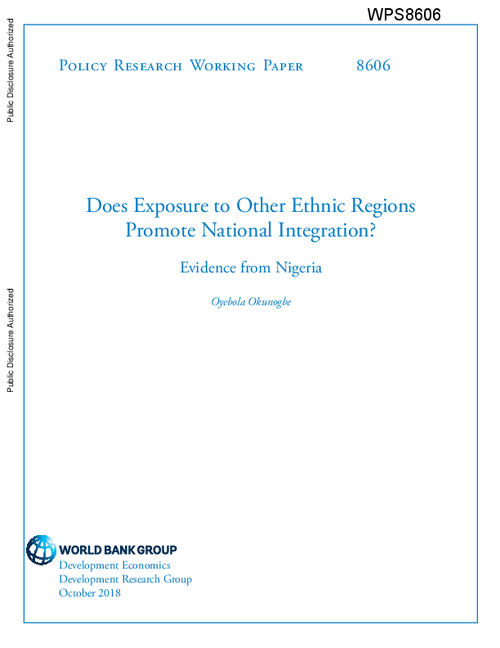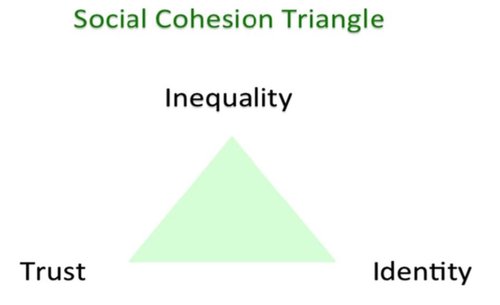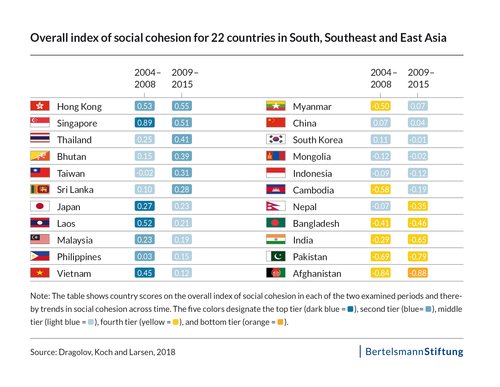Inequality and social cohesion in Africa: Theoretical insights and an exploratory empirical investigation
Key facts
Equality/Inequality
Cooperation
Economic development
Inequality
Development cooperation
Summary
Inequality is bad per se and has adverse effects, among other things, on economic development and the environment. It is also often argued that high and increasing inequalities put societies under stress, which increases the likelihood of social conflicts. However, the literature on this topic is scarce and some of the conclusions are not adequately supported by empirical evidence.
This is mainly because there are different definitions and measurements of social cohesion. Moreover, some definitions of social cohesion incorporate inequality, thus making it impossible to examine how these two phenomena interact with one another. This paper analyses both theoretically and empirically, the relationship between inequality and social cohesion. To do so, it employs a recent definition of social cohesion provided by Leininger et al. (2021). According to this definition, social cohesion is composed of three core attributes, namely trust, inclusive identity and cooperation for the common good. These attributes are examined in two dimensions, namely the horizontal (relationship among individuals) and vertical (relationship between individuals and state institutions) dimensions of social cohesion.This paper provides an overview of the empirical evidence regarding the relationship between inequality and the three attributes of social cohesion. We find that while inequality is likely to have a negative effect on all three attributes, the intensity of the relationship may depend on some key mediating factors. Moreover, we highlight the main pathways through which inequality could affect each of the three key attributes.

Explore the hub further

Does exposure to other ethnic regions promote national integration? Evidence from Nigeria



